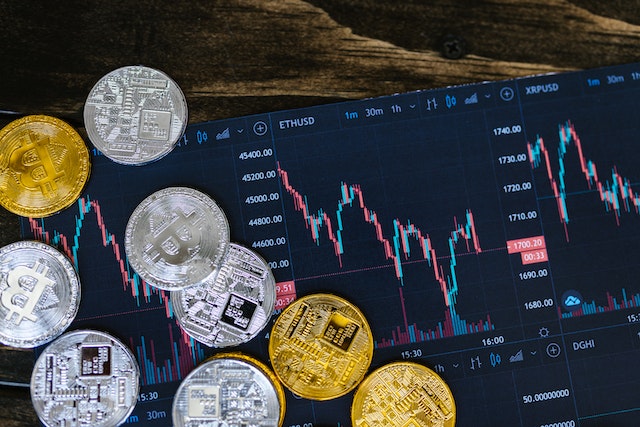Understanding NFTs
To grasp the significance of NFTs in the music industry, it’s crucial to understand what they are and how they function. NFTs are unique digital assets that utilize blockchain technology to establish ownership and authenticity. Unlike cryptocurrencies such as Bitcoin or Ethereum, which are fungible and can be exchanged on a one-to-one basis, NFTs are indivisible and possess distinct characteristics. Each NFT is one-of-a-kind, representing a specific piece of content, whether it’s a song, album, or even a concert ticket.
The Rise of NFTs in Music
The emergence of NFTs in the music industry has opened up a world of possibilities for artists, allowing them to monetize their work in new and creative ways. One of the primary benefits of NFTs for musicians is the ability to sell their music directly to fans without intermediaries. Through NFT marketplaces, artists can offer exclusive content, limited editions, and even virtual experiences to their most dedicated supporters. This direct connection between artists and fans not only provides a new revenue stream but also fosters a deeper sense of engagement and loyalty.
Unique Experiences and Fan Engagement
NFTs have the power to transform the way fans experience music. By purchasing an NFT, fans gain access to exclusive content, virtual meet-and-greets, backstage passes, or even the opportunity to collaborate with their favorite artists. These unique experiences create a sense of exclusivity and scarcity, driving up the value of the NFTs and fostering a stronger connection between artists and their fan base. NFTs also allow musicians to reward loyal fans with special perks, such as early access to new releases or VIP concert tickets, further enhancing fan engagement and loyalty.
Monetizing Music Rights and Royalties
Another significant advantage of NFTs in the music industry is the potential to revolutionize how artists monetize their music rights and royalties. Traditionally, artists have relied on record labels and streaming platforms to distribute and monetize their music. However, NFTs provide a decentralized alternative, enabling artists to retain more control over their intellectual property and revenue streams. With NFTs, artists can sell ownership rights, fractionalize their music catalogs, or even create revenue-sharing mechanisms, allowing them to receive a fairer share of the profits generated by their work.
Challenges and Considerations
While the integration of NFTs in the music industry presents exciting opportunities, it’s not without its challenges and considerations. One of the primary concerns is the environmental impact of blockchain technology, which underlies NFTs. The energy consumption associated with blockchain transactions has raised concerns about its sustainability. However, efforts are being made to address these issues, with the exploration of more eco-friendly blockchain alternatives. Additionally, there is a need for clear regulations and standards to protect artists’ rights and ensure fair compensation within the NFT ecosystem.
The Future of NFTs and Music
As NFTs continue to gain traction in the music industry, their potential impact is vast. From empowering artists with new revenue streams to revolutionizing fan experiences, NFTs have the potential to reshape the music industry as we know it. As more musicians and fans embrace this technology, we can expect to see an evolution in how music is created, consumed, and valued. Exciting collaborations, unique digital offerings, and enhanced fan engagement are just the beginning of what the future holds for NFTs and music.
Conclusion
In conclusion, the fusion of NFTs and music represents a significant shift in the digital landscape. As artists explore the possibilities of this technology, the music industry stands at the precipice of a new era. By embracing NFTs, musicians can forge deeper connections with their fans, monetize their work in innovative ways, and shape the future of the music industry. The potential of NFTs in music is limitless, and it’s only a matter of time before we witness the full extent of their transformative power.
Key Takeaways
- NFTs (Non-Fungible Tokens) have revolutionized the digital landscape, including the music industry.
- NFTs are unique digital assets that utilize blockchain technology to establish ownership and authenticity.
- Musicians can sell their music directly to fans through NFT marketplaces, eliminating intermediaries and fostering deeper engagement and loyalty.
- NFTs provide fans with unique experiences, such as exclusive content and virtual meet-and-greets, enhancing their connection with artists.
- NFTs have the potential to revolutionize how artists monetize their music rights and royalties, allowing for more control and fairer compensation.
- Challenges include the environmental impact of blockchain technology and the need for clear regulations to protect artists’ rights.
- The future of NFTs and music holds exciting collaborations, unique digital offerings, and enhanced fan engagement.
- Musicians can embrace NFTs to shape the future of the music industry and forge deeper connections with their fans.
To further explore the intersection of NFTs and the music industry, consider taking the “NYU Business of Entertainment” online course and certificate program offered by Yellowbrick. This comprehensive program will provide you with the knowledge and skills to navigate the evolving landscape of the entertainment industry, including the impact of NFTs on music. Don’t miss out on this opportunity to stay ahead in the ever-changing world of music and technology.





